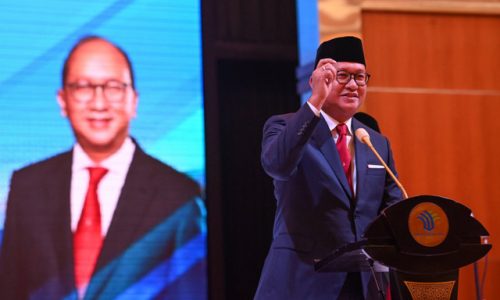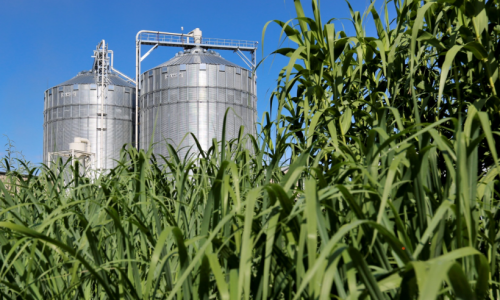Defense ministers of Malaysia, the Philippines and Indonesia decided in March 2022 to expand the trilateral patrols of the Sulu Sea as an important step toward confidence-building and securing the safety trade routes at sea. The effectiveness of the patrols remain a question whereas there are improvements. But most importantly, it is seen as a symbol of unity.
The three countries signed an agreement in September 2016 in an effort to deal with kidnappings by the Abu Sayyaf group in the Sulu Sea. The kidnapping has an impact on maritime trade in the said waters. The joint patrols have become an important step in securing the sea from criminal acts that endanger the defense, security and safety of shipping lanes in the Sulu Sea.
“The overall aim of the Sulu Sea Trilateral Patrols is to enhance maritime security in Sulu waters from terrorist disturbances. The benefit is to ensure the economic activities of the maritime community in the three countries,” defense, military and intelligence analyst Connie Rahakundini Bakrie told Indonesia Business Post on June 14, 2022, via text messages.
The operation, also known as Indomalphi, had one goal of pursuing the Abu Sayyaf group and other criminals in the Sulu Sea region. Despite this coordinated patrol, the Abu Sayyaf carried out at least several kidnappings and took hostage dozens of people from several countries and killed several others.
Security in the hands of multilateral efforts
The presence of the Sulu Sea Patrols has secured the waters in the past years, according to Indonesia’s Defense Ministry’s Head of Multilateral Sub-Directorate Col. Kurniawan Firmizi.
“Nowadays there is no piracy, unlike in the past. In the past, we tried to free our fishermen. Until last year, there were zero cases [of our fishermen] arrested by the Abu Sayyaf,” he said.
According to the International Maritime Bureau (IMB) ranking, the Sulu Sea is considered as the least safe area in terms of piracy. Export activities and the economy were often disrupted by the terrorist group.
“The main goal [of the coordinated patrol] is to increase security in the Sulu-Sulawesi Seas. For its sake, a high level of security with all parties can be good, such as the economy and security in the sea area, which can have an impact on economic improvement, the smooth flow of traffic between countries related to the Sulu Sea area and bordering security are the topics of cooperation. The patrols have used combat ships because this is military cooperation,” Firmizi explained.
Meanwhile, Bakrie said the patrols’ frequency could be increased and use of a combination of aircraft to assist the patrols.
In regional surveillance, the use of technology is very important, such as the use of drones and satellite monitoring to increase the accuracy of information.
Challenges and problems persists
However, there are many problems when carrying out operations, such as armed pirates who use traditional fishing boats. It is difficult to distinguish those pirates from ordinary fishermen and the complexity in which residents of the area cooperate with criminal groups and do not want to cooperate with the law.
“For example, it is said to trust landlords more and reject the law. The money comes from the owners, not from the Philippines government. Most of the population in Mindanao is Muslim and they sympathize with the Abu Sayyaf for carrying out its acts of terror. So that the region is more protective of the landlords. Humans will naturally feel more comfortable if someone provides security and comfort for their families,” said Firmizi.
“Until now the Mediterranean Sea is an unsafe sea. We cannot say that the English Channel is safe either. There are still incidents of piracy, incidents of forced arrests. But we cannot say piracy. The term piracy according to UNCLOS (United Nations Convention on the Law Of the Sea) is when a violation occurs on the high seas. We can say it’s not piracy but armed sea robbery using guns,” he added.
Arming the vessels
Efforts to improve trilateral operations can be carried out by sending Liaison Officers (LO) from Indonesia, Malaysia and the Philippines to each country. Apart from being technical, it can also be done through political means and trust among the three countries. There will be the elimination of disputes among the countries and the use of adequate technology such as drones and satellites.
However, former head of the Strategic Intelligence Agency (BAIS) Soleman Ponto had a different opinion.
“It only delays the problem because the problem remains there. Pirates are not stupid. And no. In my opinion, it failed. So, the patrol was only for a moment,” he told the Post on a text message on June 27, 2022.
Ponto suggested following the International Maritime Organization (IMO) which, in fact, allowed merchant ships to carry their own mercenary security forces. He said there was a failure in the system and we should be able to introspect ourselves, and patrolling was not a solution and should not be carried out continuously.
Tolerance among ASEAN members
On the other hand, there is a pride for the ASEAN region to be able to implement coordinated patrols despite the many interests of Indomalphi countries that are in conflict with each other.
“A good example is that people are very amazed by ASEAN being able to do this. European countries, on the other hand, I don’t think they can. There is an ASEAN country with specifications that other countries cannot follow. There is a custom called ‘tepa selira’ [tolerance], not only in Indonesia but also in Malaysia and the Philippines,” said Firmizi.
“For example, Russia and Finland cannot carry out joint patrols in the Baltic Sea because of problems. While Indonesia, the Philippines and Malaysia have problems, there are problematic areas and we can have disputes with other countries but we can still coordinate patrols among us. That is unique in this region. Can Japan with North Korea be on patrol together? Never. Can this example be done? I don’t think so, because yes, this ASEAN cultural habit that cannot be followed by other countries. That is the ASEAN way, tepa selira, like and respect,” Firmizi concluded.









